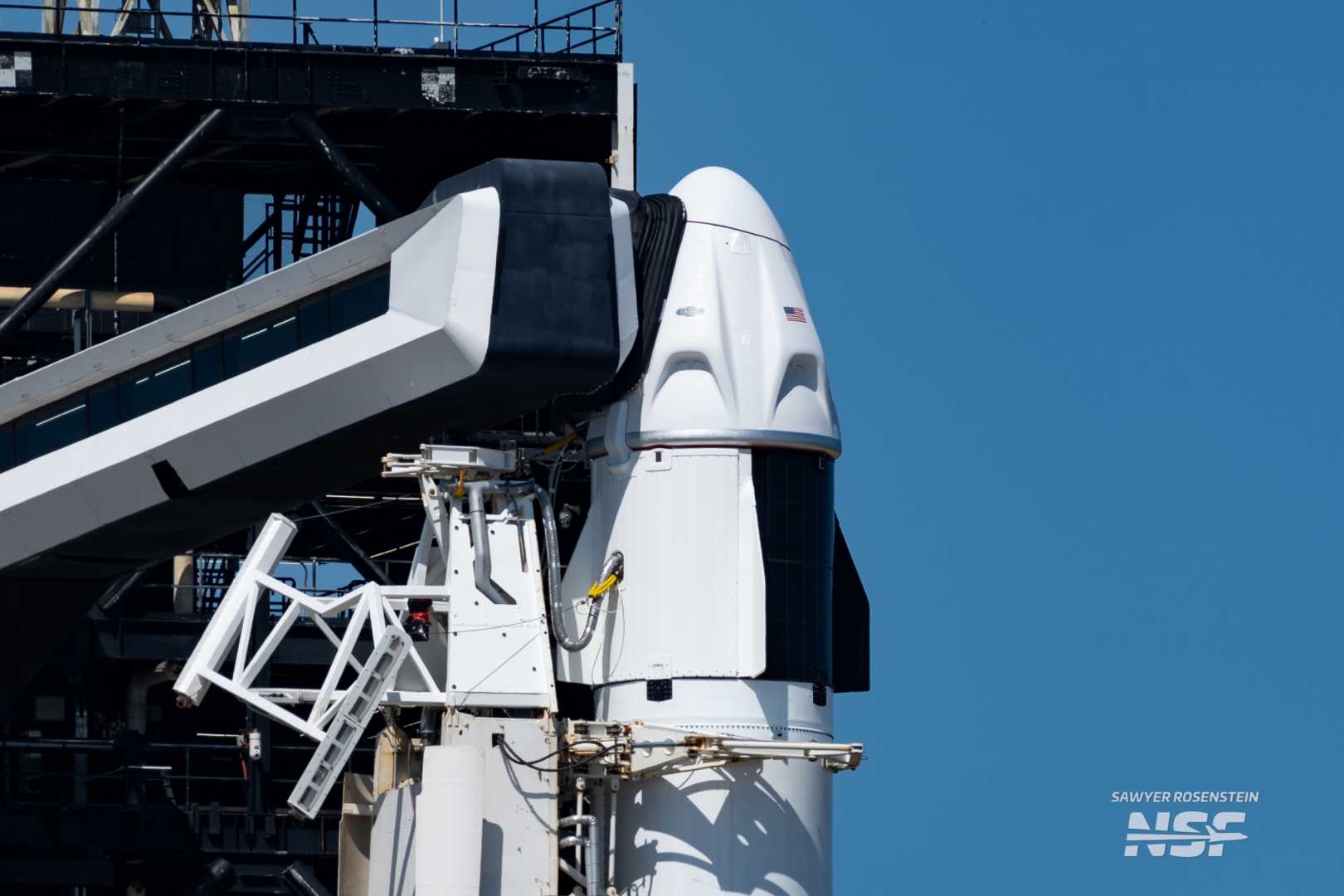News
SpaceX’s Fram2 Mission: First Crewed Voyage Over Earth’s Poles

KENNEDY SPACE CENTER, Florida — SpaceX is set to launch its groundbreaking Fram2 mission, sending a crew of four private astronauts into a unique polar orbit this Monday, marking the first human flight to traverse directly over the Earth’s poles.
The innovative mission will lift off from the Kennedy Space Center during a window opening at 9:46 p.m. ET, aiming to elevate the crew to an altitude of approximately 265 to 280 miles above Earth. The Fram2, financed by Malta-based cryptocurrency billionaire Chun Wang, is named after the historic Norwegian ship that enabled significant polar expeditions in the early 1900s.
Accompanying Wang on this remarkable journey are three novice space travelers: Jannicke Mikkelsen, a Norwegian film director; Rabea Rogge, a German robotics researcher; and Eric Philips, an Australian adventurer. None have traveled to space before.
“This mission underscores my lifelong curiosity and passion for pushing boundaries,” Wang expressed in a recent interview. “As the first crew to attempt this polar trajectory, we are really excited.”
This mission stands out as no previous human spaceflight has taken such a direct path over Earth’s polar regions. Historically, spacecraft have largely orbited near the equator. The Fram2 mission, however, will employ a more fuel-intensive flight path designed to achieve an inclination close to 90 degrees relative to the equator.
The planned trajectory follows the route taken by the crew over Cuba and Panama shortly after liftoff. The Falcon 9 rocket’s first stage booster will detach and later land on a barge, allowing the upper stage to propel the crew into orbit at speeds surpassing 17,500 miles per hour (28,000 kilometers per hour).
Dr. Christopher Combs, an associate dean at the University of Texas at San Antonio, noted that “this endeavor blends excitement with the exploration of a unique orbital path. It’s a notch above a gimmick, as we’ll be creating history with this pioneering mission.”
While there may be skepticism surrounding the scientific merits of the polar orbit, multiple studies will be conducted during the flight. This includes assessing how microgravity affects the crew’s physiology, with the team engaging in experiments designed to investigate responses to weightlessness and motion sickness.
The crew will also aim to cultivate mushrooms in microgravity. According to Dr. Flávia Fayet-Moore, CEO of FOODiQ Global, “Oyster mushrooms are the perfect crop for space. They can thrive on limited resources and could enhance nutrition for future explorers.”
Additionally, the astronauts will conduct health assessments using MRI technology. Dr. Mark Rosenberg from the Medical University of South Carolina shared, “We hope to understand whether short stints in microgravity impact the brain. Our findings could redefine astronaut health protocols.”
Fram2’s ultimate goal is to broaden the frontiers of commercial space exploration. All astronauts’ training included endeavors in extreme conditions, aligning with the mission’s focus on evaluating extreme environments.
“We are venturing where no one has ventured before,” Philips remarked. “Our training has prepared us for this extraordinary experience, and we’re eager to contribute to science and exploration.”
Upon completion of their mission, the crew is expected to return via a splashdown in the Pacific Ocean, off the coast of California, concluding a pivotal journey in space exploration.












